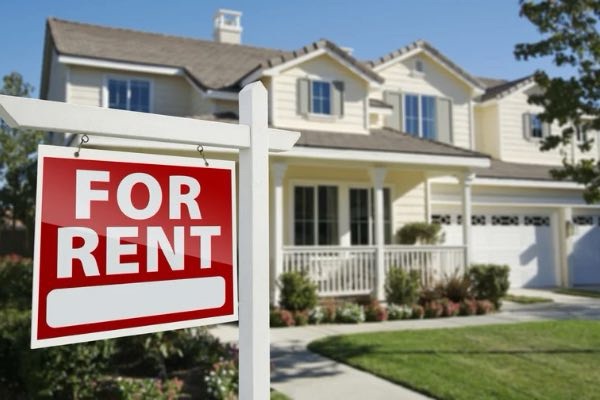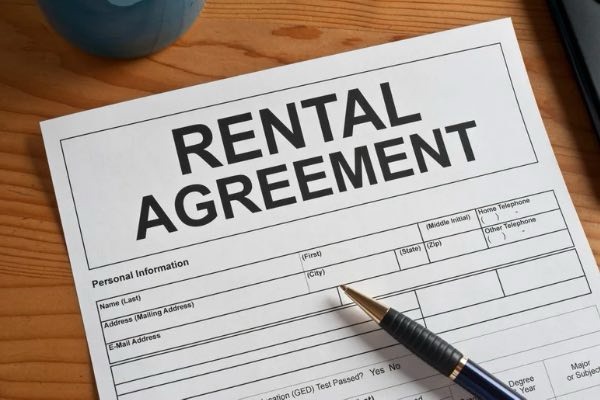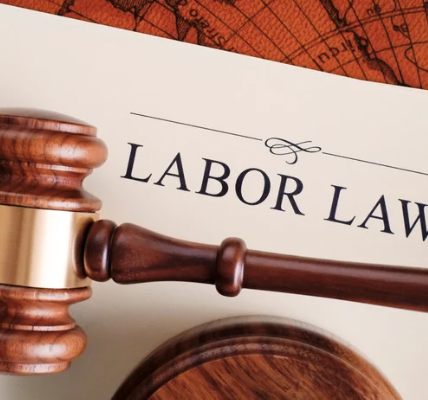Being a landlord involves much more than collecting rent checks and managing properties. It’s an engaging role that demands sound decision-making, patience, and an array of diverse skill sets. From renting your first investment property to streamlining existing operations, landlord life is never dull. But with proper strategies it can also be extremely rewarding, and not forgetting lucrative. In this blog, we will look at all of the tools and knowledge necessary for you to thrive as a landlord while remaining professional and (most importantly) protecting your sanity.

The First Step: Understanding Your Role as a Landlord
Being a landlord is about relationships. Your tenants rely on you to provide a safe and livable environment and it is important that you strike an appropriate balance between being approachable while adhering to the terms of your lease agreement. Beyond tenant relations however, your role as landlord also involves parts investigator, property manager and accountant. From screening applicants to complying with local regulations, every step requires attention to detail, which you will need to be meticulous as you run the business.
Building a Strong Foundation with the Right Property
Starting your landlord journey off on the right foot begins with selecting an ideal property. Location, size and condition all play important roles in its success. Aim for properties in neighborhoods showing potential for growth as well as featuring desirable amenities like schools, shopping centers or public transit. Fixer uppers might seem charming at first, but always calculate ROI after factoring in repairs and maintenance expenses before making your decision. Don’t buy with your heart. Buying something cute might seem appealing now but if it requires resources that sap both your time or wallet, your enthusiasm will evaporate quickly enough.
Setting the Right Rent Price Without Making Everyone Angry
Locating tenants who appreciate your property without taking advantage of it is an art and a science. Getting it wrong with your rent price could leave your property empty for months, while too little may undervalue it and attract undesirable tenants who take for granted the investment you’ve made in it. Conduct extensive market research in your property’s area to establish an appropriate rental price, taking into account amenities, utilities and condition as factors. Aim for competitive yet fair rental pricing as happy tenants will stick around. Be transparent with any fees related to upkeep of the property. Any surprise charges can make tenants uncomfortable, so don’t make the situation awkward for everyone involved.
Mastering Tenant Screening Without Feeling Like a Detective
Locating suitable tenants is one of the most important elements of being a landlord, and an efficient screening process can save you countless headaches later on. Searching for tenants that are responsible, financially stable and respectful of your property should be your top priority. Before selecting tenants to rent from, conduct credit checks, verify income and contact former landlords for references. Red flags include late rent payments, evictions or unexplained gaps in employment. Keep in mind, however, that federal and local fair housing laws dictate which factors you can consider during this process. A professional landlord understands their legal boundaries well enough not to go beyond them when conducting this assessment process.
Maintenance, Repairs, and the Never-Ending To-Do List
Ah, property maintenance. One of the more rewarding yet exhausting aspects of being a landlord. While getting up early to address an unexpected sink leak might not be on your bucket list, prompt attention on maintenance issues can go a long way towards building tenant trust and improving tenancy conditions. Well-kept properties not only look more appealing, they also help decrease turnover and vacancy periods. Proactive measures like regular inspections will allow you to address small issues before they turn into costly disasters. Partner with reliable contractors and handymen when undertaking emergencies or larger projects. Doing so can alleviate a lot of unnecessary stress (and potential DIY fails). Also be prepared for repairs costing more than anticipated. So budget for emergency repairs in case unforeseen circumstances arise.
Communication Is King (Or Queen)
To gain the respect of your tenants as a landlord, strong communication is very important. Create clear guidelines for how tenants can reach you and respond consistently when they do. Most tenants find it frustrating when their landlord refuses to respond when something needs attention such as a leaky faucet or broken appliance, yet effective communication doesn’t require always being available on call. Protect both your time and sanity by setting professional boundaries, such as office hours or specific response times for non-emergencies. This way, you’ll remain efficient without feeling overwhelmed.

For optimal results, and to make things simpler for both of you, consider using an efficient communication platform, like email or a property management app, for all dealings between landlords and tenants. Such tools keep everything organized, prevent miscommunication and clarify response expectations more effectively than other methods can do. By being friendly but professional, you can cultivate a positive relationship with your tenants while efficiently addressing issues without creating stress on either side. Good communication forms the cornerstone of successful landlord-tenant relationships.
Useful Digital Tools
Using a property management app can make life much simpler for landlords, saving them both time and stress. Such apps typically combine important tasks such as rent collection, maintenance requests, tenant communication into one easy-to-use platform. Document storage solutions such as Google Drive and Dropbox ensure that important documents, like rental agreements and inspection reports, remain well-organized and easily accessible from anywhere. Accounting software such as QuickBooks can make tracking expenses and tax preparation much simpler for landlords with multiple properties. Using appropriate property management apps and software makes property management much more efficient, ultimately leading to positive relationships between landlords and their tenants.
Handling Late Rent Payments Without Losing Sleep
Late rent payments can be an unexpected headache for landlords, but handling them doesn’t need to be stressful. To ease the process, be sure that your lease agreement includes an explicit late payment policy and plan. This should include due dates, late fees and steps for collecting overdue rent. When a tenant misses payments, handle it professionally with patience. Start a dialogue to gain an understanding of their situation. Financial hardships tend to be temporary, and open communication can often help find a resolution.

However, if the issue continues to persist, it’s important that you abide by your established policies and take any necessary legal steps, including possibly evicting them in extreme cases. Although eviction processes can seem harsh, maintaining a consistent, respectful approach will allow you to remain in control and act within the law. Being proactive, clear, and empathetic not only reduces late payments but also strengthens relationships with tenants while protecting your investment property.
The Tax Man Cometh (But Don’t Fear Him)
Being a landlord comes with many advantages, and some of them include being able to have significant tax deductions for expenses like mortgage interest, property taxes, insurance premiums, repairs, travel costs for viewings of the properties you rent out, and more. Reducing your taxes through deductions can save you substantial sums, but they require meticulous record-keeping. For maximum tax savings, hire an accountant to organize expenses as their expertise could prove invaluable. Tracking income and expenses using software or spreadsheets will make tax preparation much simpler, saving time and avoiding headaches when tax season rolls around. A successful landlord needs not only be skilled at overseeing properties, they must also possess financial savvy. By being organized and proactive you can take full advantage of tax benefits associated with property ownership while having a complete picture of your financial position.
Knowing When to Bring in the Professionals
There’s a fine balance between being resourceful and taking on too much. When managing properties becomes overwhelming or beyond your capacity, it may be better to get assistance. Hiring a property manager, taking advantage of technology to streamline tasks such as rent collection or delegating certain responsibilities are all ways of improving your daily operations and streamlining processes. Though these services incur fees, they can provide significant time- and stress-saving advantages. Outsourcing allows you to focus on expanding your investment portfolio, improving current properties, or simply freeing up more time for yourself. Knowing when it’s best to outsource and hire professionals is important for successfully managing properties while keeping a healthy work-life balance.
The Landlord’s Mindset
Success as a landlord rests upon adopting the appropriate mindset. Being adaptable and open to learning from each challenge are absolutely key components to making sure each tenant receives excellent care and service. Tenants will occasionally take you by surprise, properties will present unique challenges, and unexpected events may arise to keep you on your toes. But each issue provides an opportunity to hone your skills and enhance your approach. Successful landlords approach the role with an attitude of openness to learning and growth as well as professionalism while remaining lighthearted enough to maintain an understanding of humor in response to bizarre scenarios their renters can present them with.

Laughter may sometimes be necessary in order to cope with such scenarios. People’s inventive ways of blocking pipes or misusing appliances might leave you bewildered, so cultivating resilience, adaptability, and humor are key skills for property managers to face its various ups and downs successfully. By viewing challenges not as setbacks but as learning experiences instead, you position yourself to flourish over the long haul, keeping both your sanity and passion alive within your business.
Conclusion
Being a landlord can be challenging at times, but for those who master it can be an immensely satisfying route to financial freedom and stability. To succeed as a landlord it’s important to be proactive, organized, and open-minded. By following these guidelines and continuously learning and improving yourself as a landlord, you will soon build up an extensive real estate portfolio. So keep an open mind, stay adaptable, and enjoy this exciting journey of landlord hood.




